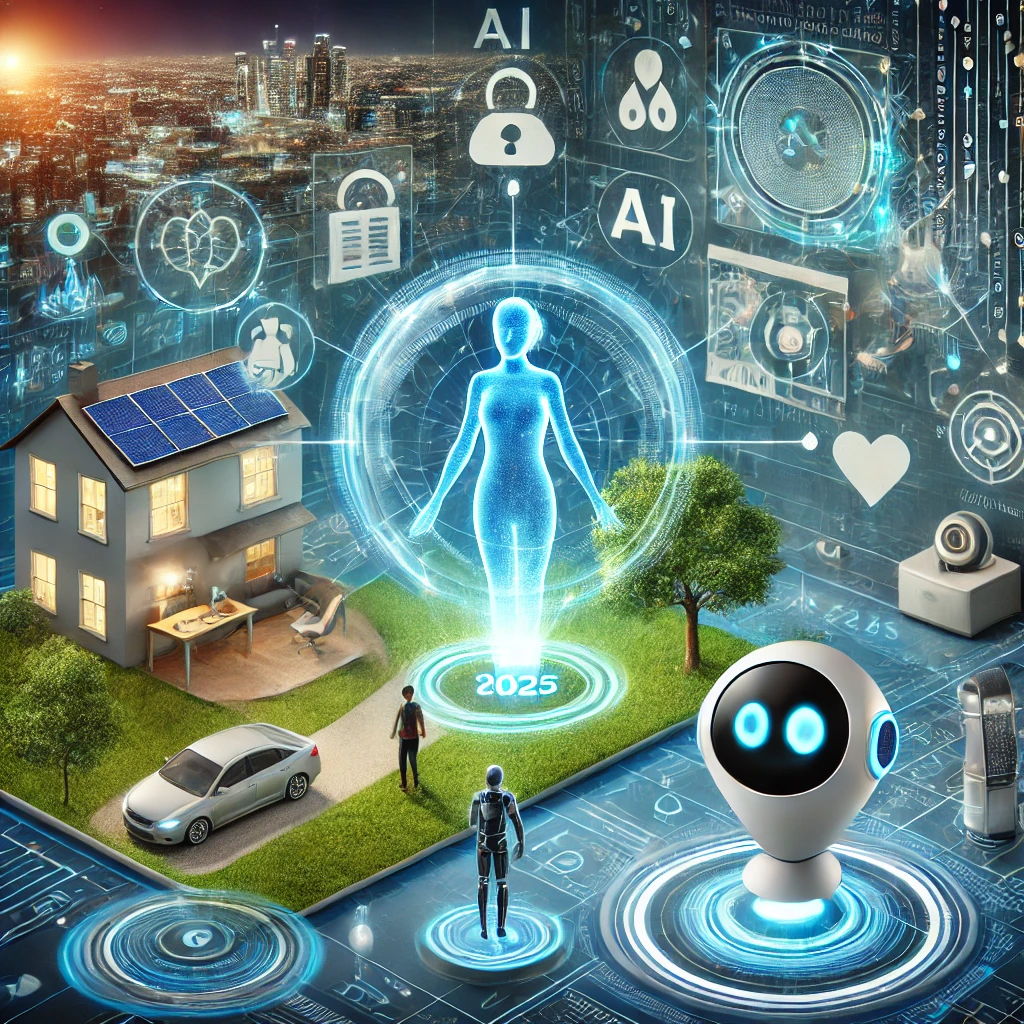AI in 2025 is reshaping how we live, work, and interact with technology. This blog explores key advancements in artificial intelligence that are transforming our everyday lives
Artificial Intelligence (AI) continues to dominate the tech world, pushing boundaries and redefining industries. As we dive into 2025, several transformative AI trends are shaping the future. From enhanced automation to ethical AI, let’s explore the latest advancements and their implications.
1. Generative AI Revolution
Generative AI tools, like AI, have evolved significantly, empowering creators to produce high-quality content, art, and music with minimal effort. Industries are leveraging these tools for personalized marketing campaigns, customer interactions, and rapid prototyping.
Key Highlights:
- Increased use in content marketing to drive engagement.
- Applications in gaming for realistic character generation.
- Enhanced user experiences through AI-driven personalization.
2. AI-Powered Automation
Automation is no longer confined to manufacturing; AI is streamlining tasks in healthcare, finance, and customer service. From chatbots handling inquiries to robotic process automation (RPA) in banking, the possibilities are endless.
Benefits:
- Cost reduction and increased efficiency.
- 24/7 service availability for customers.
- Reduction in human errors.
3. Ethical AI and Governance
As AI becomes more pervasive, ethical concerns are gaining traction. Companies are focusing on transparency, accountability, and eliminating biases in AI algorithms.
Trends to Watch:
- Implementation of AI ethics boards in organizations.
- Development of unbiased AI models.
- Regulatory frameworks to ensure responsible AI usage.
4. AI in Healthcare
AI’s role in healthcare is expanding rapidly, with applications in diagnosis, drug discovery, and personalized medicine. AI-driven tools are enabling faster and more accurate decision-making for medical professionals.
Examples:
- AI-powered diagnostic tools for early disease detection.
- Predictive analytics for better patient outcomes.
- Virtual health assistants improving patient care.
5. Edge AI
Edge AI, which processes data locally on devices rather than relying on cloud computing, is becoming a game-changer. This technology is crucial for real-time applications in autonomous vehicles, IoT devices, and wearable tech.
Advantages:
- Reduced latency for faster decision-making.
- Enhanced data privacy and security.
- Lower dependency on internet connectivity.
6. AI and Sustainability
AI is playing a critical role in promoting sustainability. From optimizing energy consumption to reducing waste, businesses are leveraging AI to meet their environmental goals.
Applications:
- Smart grids for efficient energy distribution.
- AI-driven agriculture for sustainable farming practices.
- Waste management systems powered by machine learning.
7. AI in Education
AI is transforming education by personalizing learning experiences and automating administrative tasks. Virtual tutors and AI-driven platforms are making education more accessible worldwide.
Impact:
- Customized learning paths for students.
- Automated grading systems for faster evaluations.
- Increased access to quality education in remote areas.
Conclusion
The advancements in AI are shaping a smarter, more efficient, and sustainable future. As generative AI, automation, and ethical considerations take center stage, businesses and individuals alike must adapt to these trends to stay ahead. Whether you’re an entrepreneur, tech enthusiast, or casual observer, the AI revolution is one to watch closely in 2025 and beyond.



